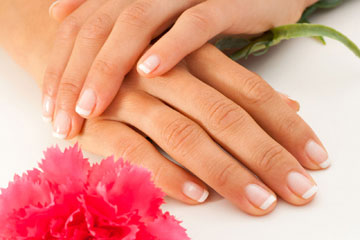Nail care is important for health as well as for aesthetic reasons. The condition of your nails reflects your overall health, and caring for them is important as washing your hair and having a bath/shower because. Nail care doesn’t mean visiting the salon on a regular basis; all you have to do is include a combination of a well-balanced diet, a thoughtful beauty regimen, and good personal hygiene in your daily life. This will also give you salon-worthy nails at a fraction of the cost and chemical burden.
Here are the do’s and don’ts for healthy finger nails.
Fingernail care do’s:
Healthy habits to follow:
- Practice good nail hygiene: Cutting and trim your nails, going around the tips in a gentle curve. Use appropriate tools such as sharp manicure scissors or clippers.
- Keep your nails dry and clean: Repeated or prolonged contact with water can contribute to split nails and also cause bacteria to grow under your fingernails. Keep your nails dry and clean to protect them from fungi and bacteria.
- Wear gloves: Your hands and nails can take a toll while washing dishes, using household cleaning chemicals, or pulling weeds in the garden. Using gloves can protect both the hands and the nails from the wear and tear that these common activities cause. Wear cotton-lined rubber gloves.
- Moisturize your nails and nail beds: Regularly moisturizing the hands and cuticle area of nails with oil or hand lotion can help prevent chipping, cracking, splitting and peeling.
- Be cautious when doing office work: While in office, make sure you use tools to help you complete tasks, such as a letter opener to open mail or a knife or flat object to open cans. Putting extra, unnecessary pressure to your nails for these activities can make your nails crack. While typing, use the flat area of your finger pads on the keyboard instead of the tips of your nails.
- Sterilize nail tools: Nail tools should be carefully cleaned and sterilized and nail files should be replaced regularly to prevent bacteria and microbes from occupying.
- Treat ingrown and torn nails as soon as possible: To avoid infection, ingrown nails and torn nails should be treated immediately. You can either try homemade remedies or see a dermatologist.
- Apply nail hardener: Applying nail hardener helps will keep your nails moisturized and prevents splitting.
- Consider taking nutritional supplements: If you suffer from weak or brittle fingernails, then you might need zinc and biotin supplements. Often labeled “hair, nail and skin supplements”, these can strengthen your nails. Consult your doctor before you take them.
Fingernail care dont’s:
Don’t do the following:
- Bite your fingernails: Nail biting is a common way to cope with anxiety or boredom, but it’s an unhealthy habit. It can lead to tiny openings in the skin, which can trigger an infection.
- Cut, bite or pick at your cuticles: This can damage the nail bed. Even a minor cut alongside your fingernail can allow bacteria or fungi to enter and cause an infection.
- Pull off hangnails: Carefully clip off hangnails. If you pull them off, you might rip live tissue along with the hangnail.
- Use harsh nail care products. Nail care products such as nail polish remover that contain acetone is very harsh for your nails. So, limit your use of nail polish remover and when using nail polish remover, opt for an acetone-free formula.
- Ignore inflammation, a strange growth, color or texture: Healthy nails will have a uniform color and consistency. If you notice an abnormal or unusual nail problem that doesn’t resolve on its own or is associated with other signs and symptoms, consult your doctor or dermatologist. These may be a sign of an underlying problem.
- Peel off your polish: Peeling of nail polish also removes layers of actual nail. The right way to remove polish is to use an acetone-free formula nail polish remover.
- Don’t soak nails for long periods: The longer soap or detergent is in contact with skin and nails, the greater the potential for damaging the nail and cuticle structure.
Following these basic rules can help keep your nails healthy and beautiful always.
